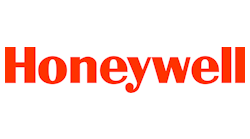In what has been a relatively quiet year thus far for M&A and other significant business maneuvers among security manufacturers, Honeywell earlier this week sent shockwaves throughout the industry when it announced plans to spin-off ADI and its home security businesses into a standalone, publicly-traded company.
According to a statement, the new independent company will include home heating, ventilation and air conditioning (HVAC) controls, and security products along with the ADI Global distribution business. Honeywell will also be spinning off its Transportation Systems business into an independent firm. Both spin-offs are expected to be complete by the end of 2018.
“When the spin-off is completed, we will be a $4.5 (billion), publicly-traded organization with leadership positions in the HVAC, home security, connected home and low voltage distribution industry,” Scott Harkins, vice president of IoT Partner Programs for Honeywell Connected Home, wrote on LinkedIn following the deal’s announcement. “Our professional channel brings 80,000 professional HVAC and security dealers driving hundreds of thousands of sales calls every day. Consumers have access to many of our products via thousands of retail outlets. And now, this spin-off will laser (focus us) on our incredible customer base and investing in delivering the best consumer experiences in the security and HVAC industry to drive amazing value and growth for our customers and ourselves.”
The Vendor Perspective: Remaining Innovative and Competitive
Despite many of the upstarts that have introduced revolutionary new technologies into the smart home and residential security space in recent years, Blake Kozak, principal analyst for smart home and security technology at IHS Markit, says Honeywell has “been a surprise in its ability to innovate” with regards to connected home products and that they estimate the company to be the market leader in thermostats for the smart home. By becoming an independent company, he says this will allow the newly formed Homes and Global Distribution business to innovate at even faster pace – which is essential in today’s market.
“Innovation is critical for traditional intruder alarm manufacturers to maintain market share as suppliers, such as Nortek (2GIG, and service providers, such as Vivint, launch new products, software and partnerships,” Kozak says. “Product suppliers and service providers that continue to rely solely on conventional channels will start to lose market share in 2018.”
Kozak says that security manufacturers and professional monitoring firms that do not adapt to the new phenomenon of DIY installation with professional, no-contract monitoring will be left behind. Considering this, Kozak says the new company will be better positioned moving forward. “By splitting, the Honeywell security product lines are in a better position to compete as the paradigm changes,” he adds.
Ahead of Memoori’s upcoming annual report on the physical security business , its director, Jim McHale, weighed in on this announcement, saying the move will bode well for the rest of Honeywell. “Honeywell has decided that ADI and home products do not fit in their portfolio,” McHale says. “Neither of these operations are business-to-business and all of their profitable and growing operations are. We think it is a good move for Honeywell and will also allow the new spin-off to operate independently making their own decisions to suit their objectives and goals.”
Dealer Impact
Even though the announced company shift will not be completed until the end of 2018, many dealers are already scratching their heads. News of the announcement on SecurityInfoWatch’s and Security Dealer & Integrator (SD&I)’s social media pages brought comments from dealers that essentially boil down to “what does this all mean?”.
The answer to that question was not forthcoming from Honeywell as of yet; in fact, outside of the company’s press release on the matter, it has been pretty tight-lipped. But with Honeywell CONNECT – its annual dealer conference on the horizon for Nov. 9-12 – dealers should be seeking clarification.
On the speculation front, John Robuck, managing director of the security finance lending practice within Capital One Bank's Commercial and Specialty Finance business, says the spin-off, while it may cause a bit of concern for the company’s dealers in the short-term, will likely be a good move for customers in the long run.
“The impact from the spinout will likely cause some near-term confusion and uncertainty for the many Honeywell dealers,” Robuck says. “However, over the longer term, the move should be positive provided the standalone ADI/Home Products business continues to be well-capitalized. A smaller, more focused business with resources that allow it to continuously invest in new products/technologies may be more responsive to customer/dealer needs.”
Benefits and Potential Pitfalls
Kozak says that as an independent firm, the new business should be better able to position itself for the long term by becoming more of a technology company through innovation and creative sales channels.
Conversely, no longer being a part of the Honeywell umbrella could also present its own challenges. “By no longer being under the Honeywell umbrella, and the sharp rise in competitors, this move could lead to installers/dealers jumping ship and heading elsewhere,” Kozak explains.
McHale says that while they will be in control of making future decisions for the betterment of the company, the new Homes and Global Distribution business will also have to forge its own path in the marketplace without having a “well-respected international brand” to back them up.
“There will be inter-trading between Honeywell and ADI/Home Products but it will not be long before both make decisions devoid of their previous links,” McHale adds. “I think ADI/Home Products are more likely to benefit from this.”
In addition, this spin-off also follows the company’s widely-publicized merger flirtations with UTC last year and the rumored shopping of its Building Solutions business. According to Kozak, the companies may revisit this merger being that the deal may now be looked upon more favorably by regulators.
“What this means is that as an individual unit, Honeywell could be in a better position to challenge Tyco/Johnson Controls – or if the strength of the individual unit isn’t strong enough, a merger with UTC could be an interesting move,” Kozak says.
A Timely Exit?
By all accounts, the smart home market is expected to grow exponentially in the coming years. In fact, according to Zion Market Research, the global smart home market, which was valued at $24.10 billion in 2016, is forecast to more than double over the next five years, reaching $53.45 billion by 2022.
The overall growth in home automation has even been credited with helping to revive consumer interest in home security systems – as many reports have pegged security as the “backbone” of the smart home. However, Kozak says this spin-off shows that both R&D and marketing dollars must continue to be poured into the smart home market in order for companies to remain competitive.
“Although brand recognition goes a long way in the security industry, eventually product design and user-interface will trump long standing brand recognition. What this means is that Honeywell has likely recognized the level of competition they are likely to face over the next 5-10 years as telcos and DIY systems force Honeywell to alter its traditional channels and business model,” Kozak explains. “For example, MONI is the partner of choice for Nest and Vivint has partnered with Best Buy, Sprint and created Vivint Smart Properties for developers and multi-family managers.”
As such, Kozak says the decision by Honeywell to essentially exit the market aligns with other companies in the industry who are also considering making changes to their business strategy – either by going public or shopping their smart home and security business to the highest bidder. “As a result, many of the owning companies could be looking to part ways to make a profit before the competitiveness of smart home hits new levels,” Kozak says.
However, Kozak adds that other companies, such as Comcast with its recent acquisition of Stringify and parts of Icontrol, are actually “doubling down” on the market.
McHale agrees that remaining competitive in the smart home space is going to require a significant investment on the part of organizations moving forward and that Honeywell likely saw the writing on the wall in this regard. “Home automation was the next big thing some 20 years ago. In the last five years, it has made progress but still requires large sums of investment,” McHale says. “The world’s major IT communication companies are leading this business and can afford to take the risk. Honeywell has quite rightly decided to work to their strengths.”
About the Author:
Joel Griffin is the Editor-in-Chief of SecurityInfoWatch.com and a veteran security journalist. You can reach him at [email protected].






